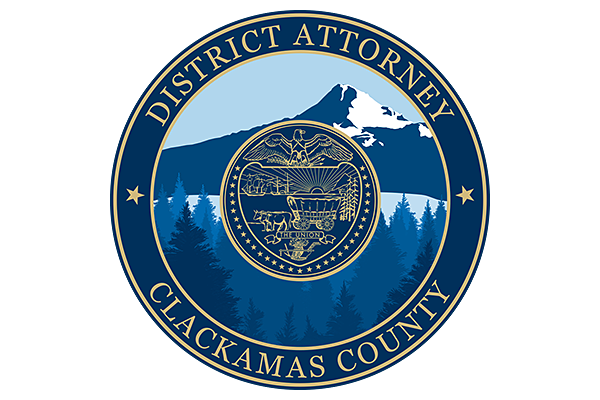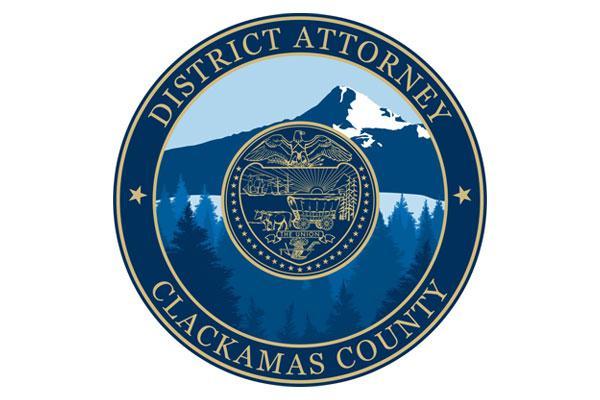The mission of the Clackamas County District Attorney’s Victim Assistance Program is to involve crime victims and the community in a process that helps to diminish the devastating impact of crime. Experienced advocates are available to assist victims of all crimes and provide support to individuals who have suffered physical, emotional and/or financial harm as the result of crime.
Advocates provide:
- crisis intervention in the immediate aftermath of a crime
- emotional support and referrals to other resources
- safety planning and assistance with protective orders
- information regarding your rights within the criminal justice system
- information about court hearings and accompaniment to hearings and meetings related to your case
- assistance requesting restitution and applying for Crime Victim Compensation to address out-of-pocket expenses caused by a crime
Services
Hope Card
If you have received a protective order, the State of Oregon has created the Hope Card Program to give petitioners a convenient way to provide information about their orders to law enforcement, employers, landlords, schools, etc.
Types of protective orders that qualify for a Hope card:
- Elderly Persons and Persons with Disabilities Abuse (EPPDAPA)
- Prevention Act Restraining Orders
- Family Abuse Prevention Act (FAPA) Restraining Orders
- Sexual Abuse Protection Orders (SAPO)
- Stalking Protection Orders
- Out-of-State or Tribal Nations Protection Orders
Want to be a Volunteer?
Help support victims of crime in your community as a Volunteer Victim Advocate
The Clackamas County District Attorney’s Office supports victims of crime through the use of volunteers as well as staff advocates. As a Volunteer Victim Advocate, you have the unique privilege of providing crisis intervention and ongoing support to people in the aftermath of trauma caused by crime. Advocates keep victims informed of events in their case, accompany victims to court and support them in accessing their rights under Oregon law. The support of an advocate during a difficult and complicated process can minimize additional stress and trauma a victim of crime may experience.
The work of our volunteers is supported by District Attorney’s staff and includes an initial, comprehensive, 40-hour training as well as ongoing monthly meetings which provide information on advocacy skills and resources for victims of crime. The initial 40-hour training is offered twice a year and classes are held in the evening. Our next training starts in September 2026.
Many volunteers work full-time jobs along with their volunteer commitment. Essential qualities for an advocate include empathy, good listening skills and being able to help people problem-solve. Advocates must be at least 18 years of age, have reliable transportation and no criminal background. Victim advocacy is a very rewarding opportunity give back to your community.
For more information, please contact victim assistance office at 503-655-8616 or email at victimsassistance@clackamas.us.
Civil Rights Compliance Statement for Clackamas County DA-VAP
The Clackamas County District Attorney's Office Victim Assistance operates its program, services and activities in compliance with federal nondiscrimination laws. No person shall, on the basis of race, color, national origin (including limited English proficiency), disability, religion, sex, gender identity, sexual orientation, or age, be excluded from participation in, be denied the benefits of, or be otherwise subjected to discrimination under any of our programs. To file a complaint of discrimination, write Office for Civil Rights, Office of Justice Programs, U.S. Department of Justice (OCR), 810 7th Street, NW, Washington, DC 2O53t or call 202-307-0690 (Voice or 2O2-3O7-2O27 (TDD/TTY). Individuals who are hearing impaired or have speech disabilities may also contact OCR through the Federal Relay Service at 800-877-8339 (TTY), 877-877-8982 (Speech) or 800-845-6136 (Spanish). To file a complaint of discrimination with this organization, write, or call. To file a complaint of discrimination with the Oregon Department of Justice, Crime Victim and Survivor Services Division, write Oregon Department of Justice, Crime Victim and Survivor Services Division, Attn: Shannon Sivell, Complaint Coordinator, L1.62 Court Street NE, Salem, OR 97301 or call 503-378-5348. You may also email shannon.l.sivell@doi.state.or.us.
 Translate
Translate








